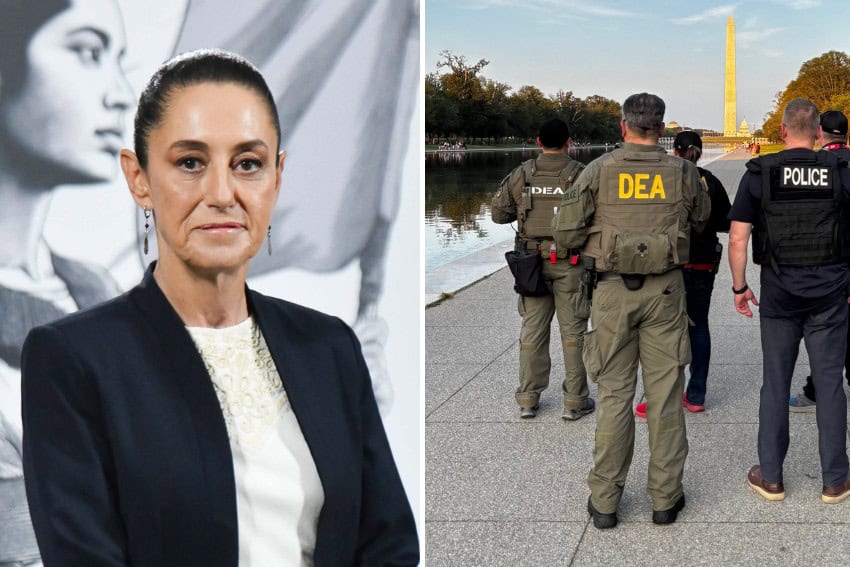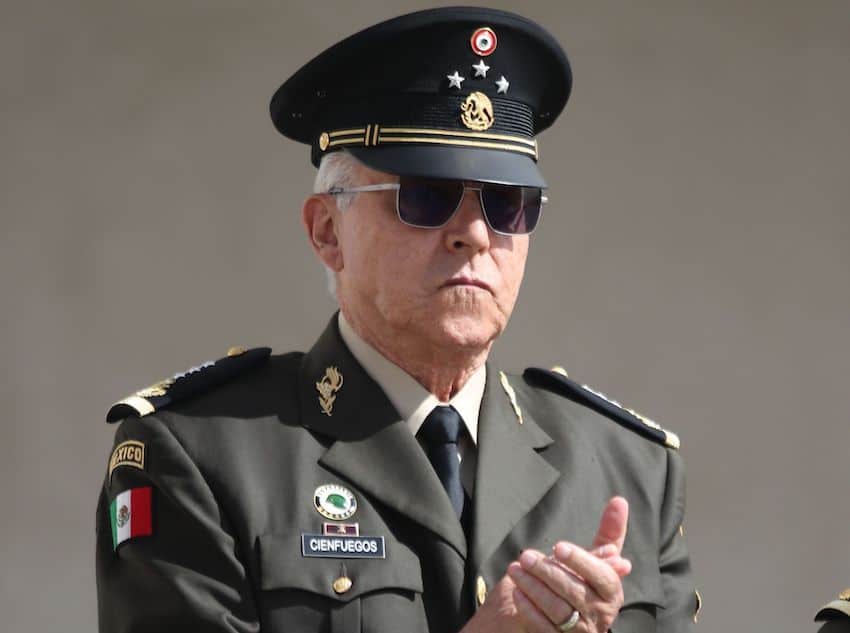The U.S. Drug Enforcement Administration’s recent announcement of Project Portero was meant to signal progress. Instead, it feels more like the exposing of something far more troubling. It feels like a glaring lack of coordination, or perhaps respect, between two governments that claim to be partners in the fight against fentanyl.
Billed by the DEA as a bold new joint initiative with Mexico to dismantle cross-border trafficking networks, Project Portero seems to have landed with a thud. Within a day, Mexican President Claudia Sheinbaum denied the operation’s very existence, thereby blindsiding observers, undercutting any illusion of bilateral unity, and exposing serious communication failures at the highest levels of international security coordination.

“There is no agreement with the DEA,” Sheinbaum stated bluntly during a press conference on August 19. “No federal institution, neither the Security Ministry, the National Guard, nor the Foreign Ministry, has signed off on anything resembling Project Portero.”
The DEA had characterized the initiative as an example of enhanced collaboration between U.S. and Mexican authorities. It highlighted joint workshops, shared strategy sessions, and an intention to target cartel “gatekeepers” key figures who facilitate the flow of synthetic drugs like fentanyl across the border.
According to the DEA, this initiative represented renewed synergy between two nations grappling with a transnational crisis.
However, Sheinbaum painted a much more limited picture. While she acknowledged that a few Mexican officers had recently attended a workshop in Texas hosted by U.S. officials, she insisted the event was “purely instructional” in nature. It did not, she said, represent any formal agreement, coordinated operation, or approved bilateral initiative.
Her remarks, while diplomatically worded, carried an unmistakable tone of irritation, and a firm reminder that any cooperation must follow established channels of approval.
“These types of announcements should not be made unilaterally,” she said. “Respecting national sovereignty is not negotiable.”

This episode is not without precedent. Tensions over security cooperation have long complicated U.S.-Mexico relations. In 2020, the DEA’s arrest of former Mexican Defense Minister Salvador Cienfuegos in Los Angeles, without prior notification to the Mexican government, sparked national outrage. The fallout from that incident led to new laws in Mexico restricting the operations of foreign agents within its borders and straining intelligence sharing protocols between the two countries.
Although Sheinbaum entered office signaling a more open and pragmatic approach, she approved multiple high-level cartel extraditions to the U.S. in her first month. The sudden rollout of Project Portero may have undermined the trust required to sustain that cooperation. In a political environment still sensitive to perceived foreign overreach, the DEA’s announcement seemed tone-deaf at best, and diplomatically reckless at worst.
The DEA, as of this writing, has not issued any follow-up clarification, nor has it responded publicly to the Mexican government’s denial. For many, the agency’s silence has only deepened the uncertainty and frustration surrounding the episode.
While the controversy may seem like a bureaucratic squabble to some, for the more than 1.6 million Americans who live, work, or retire in Mexico, the implications are anything but abstract. Conflicting narratives between Washington, D.C., and Mexico City sow confusion about the actual level of law enforcement coordination on the ground, particularly in states plagued by cartel violence, extortion, and kidnapping.
Many U.S. citizens living in Mexico assume that behind-the-scenes cooperation between American and Mexican authorities provides a safety net, especially in those high-risk areas. But the fallout from Project Portero casts doubt on that assumption, revealing that some security initiatives may be exaggerated or even misrepresented without clear diplomatic backing.
Without clearly defined, legally sanctioned joint protocols, Americans abroad may not know who to contact or what kind of assistance to expect in a crisis. If a U.S. citizen is kidnapped or caught in cartel-related crossfire, will Mexican security forces coordinate with U.S. agencies? Will those agencies even be legally allowed to step in?
The Project Portero debacle also shines a light on a much deeper problem; a lack of effective, institutionalized communication mechanisms between U.S. and Mexican governments when it comes to sensitive security matters.
Who signs off on binational enforcement strategies before they are announced? What level of inter-agency review is required on either side? Are announcements like this coordinated through embassies, security liaisons, or simply left to individual agencies?
At best, the situation reveals a breakdown in bureaucratic process. At worst, it exposes fundamental disagreements about sovereignty, authority, and transparency.
While the DEA likely saw Project Portero as an opportunity to demonstrate proactive engagement with a key ally, the effect may have been the opposite. By publicly referencing a project without confirming Mexican approval, the agency may have embarrassed the Sheinbaum administration and soured diplomatic goodwill just as it was beginning to stabilize.
For Sheinbaum, the incident served as a high-profile opportunity to reaffirm her government’s position on foreign involvement in domestic affairs. “Cooperation, yes. Subordination, no,” she said, repeating a phrase that has quickly become a mantra for her administration and a clear boundary for future negotiations.
As of now, no joint operations under the banner of Project Portero are underway in Mexico. However, Mexican officials have indicated that they are pressing forward with the negotiation of a broader, legally binding bilateral security agreement; one that will spell out the terms of cooperation, information sharing, and operational authority more clearly and definitively.
Whether such an agreement will be reached in the near future remains to be seen. Domestic political pressure in both countries, especially amid rising violence and the ongoing opioid crisis, may either accelerate or complicate the process.
For Americans living in Mexico, the immediate lesson is simple but sobering. Do not assume that security cooperation exists just because one agency announces it. Binational law enforcement operations are inherently complex, politically sensitive, and often entangled in competing narratives.
Even when both sides have good intentions, miscommunication can create dangerous gaps in protection and support. Assumptions can be costly, and partial truths, even from official sources, can leave citizens exposed in moments of crisis. In the realm of international security, perception matters as much as policy. When one government declares an initiative underway and the other publicly denies it, the consequences extend far beyond the press conference podium. They reach into the lives of everyday people. The citizens, tourists, and retirees are left wondering what protection, if any, they can count on.
The fallout from Project Portero wasn’t just a diplomatic misstep, it was a warning. Americans living in Mexico deserve clear, coordinated, and verified information about their safety. They deserve a functioning framework of binational cooperation, not crossed signals and quiet confusion.
Both governments have a responsibility to do better. Not just for one another, but for the millions of lives caught in the space between them.




